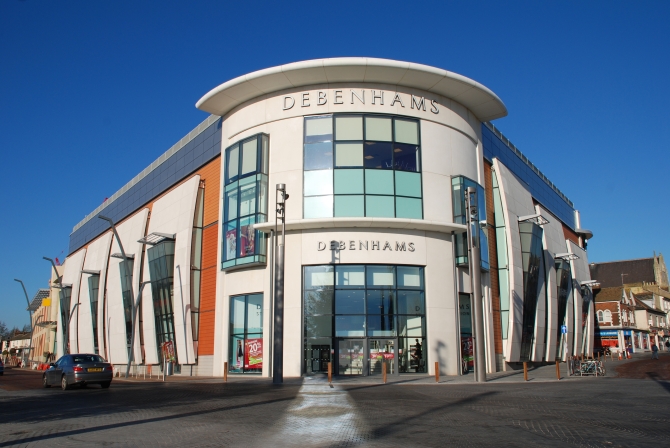Debenhams chief executive Michael Sharp remains optimistic despite the retailer’s disappointing annual sales results.

In the year to the 30th of August, Britain’s second largest department store recorded a profits plunge of 24.8 per cent, with pre-tax profits amounting to £87.2 million. However, like for like sales did manage to grow by 1 per cent, indicating that conditions are steadily improving albeit slowly.
Its online operations have become one of Debenhams’ key areas of growth, with a 17.6 per cent increase bringing total online sales to £430.7 million. This is significantly higher than 2013’s online sales growth of 13.2 per cent and means that the category now accounts for 15.3 per cent of total sales throughout the year.
Mr Sharp claims that the retailer has worked hard to address problems within the business, which is why the second half of the year proved much more successful than the first.
He says; “After the challenges we faced in the first half, everyone in the business has been focused on addressing the issues we identified and on delivering on the priorities we set out in April to deliver long term sustainable growth.
“Our performance in the second half reflects this, with operating profit up on the previous year.
“Customers tell us that although they are encouraged by economic improvements, this has yet to translate into higher disposable income and the market remains tough.”
The need for a turnaround plan became starkly apparent in the weeks following Christmas 2013, when the retailer was forced to issue a profits warning due to unexpectedly low sales during the holiday trading period.
A further profits warning followed slightly later in the year as the department store was forced to heavily discount items as a means of shifting stock to create space for new lines.
Fortunately, thanks to the heartening second half performance, it seems that turnaround initiatives are starting to have a positive effect.
Mr Sharp approached retailers such as Mothercare, Sports Direct and Costa with a view to expanding Debenhams’ range of concessionary retailers in stores throughout the country, and has also placed a great deal of emphasis on cutting costs as a means of increasing footfall.
In addition, Debenhams has continued to press forward with store revamp projects which aim to improve the layout of concessionary areas and create a more pleasing environment for consumers.
At present, the department store operates 240 stores in 28 countries but is seeking to expand its UK estate with a number of new openings in the pipeline – the majority of which will see Debenhams become the anchor store in new regional retail developments.
Hopefully, the turnaround during the second half of the year will see Debenhams finally achieve recovery, yet with its share price down almost 20 per cent since last year, the retailer has a lot of work still to do.